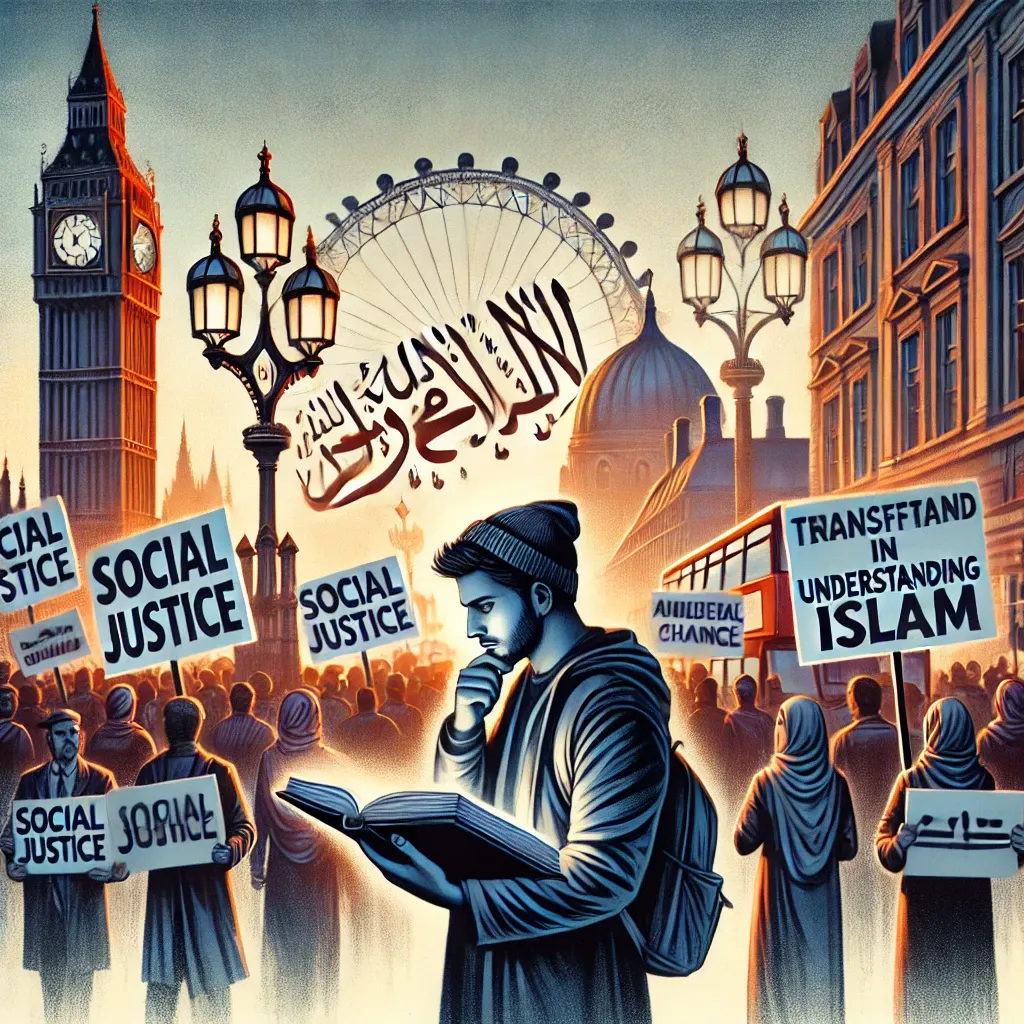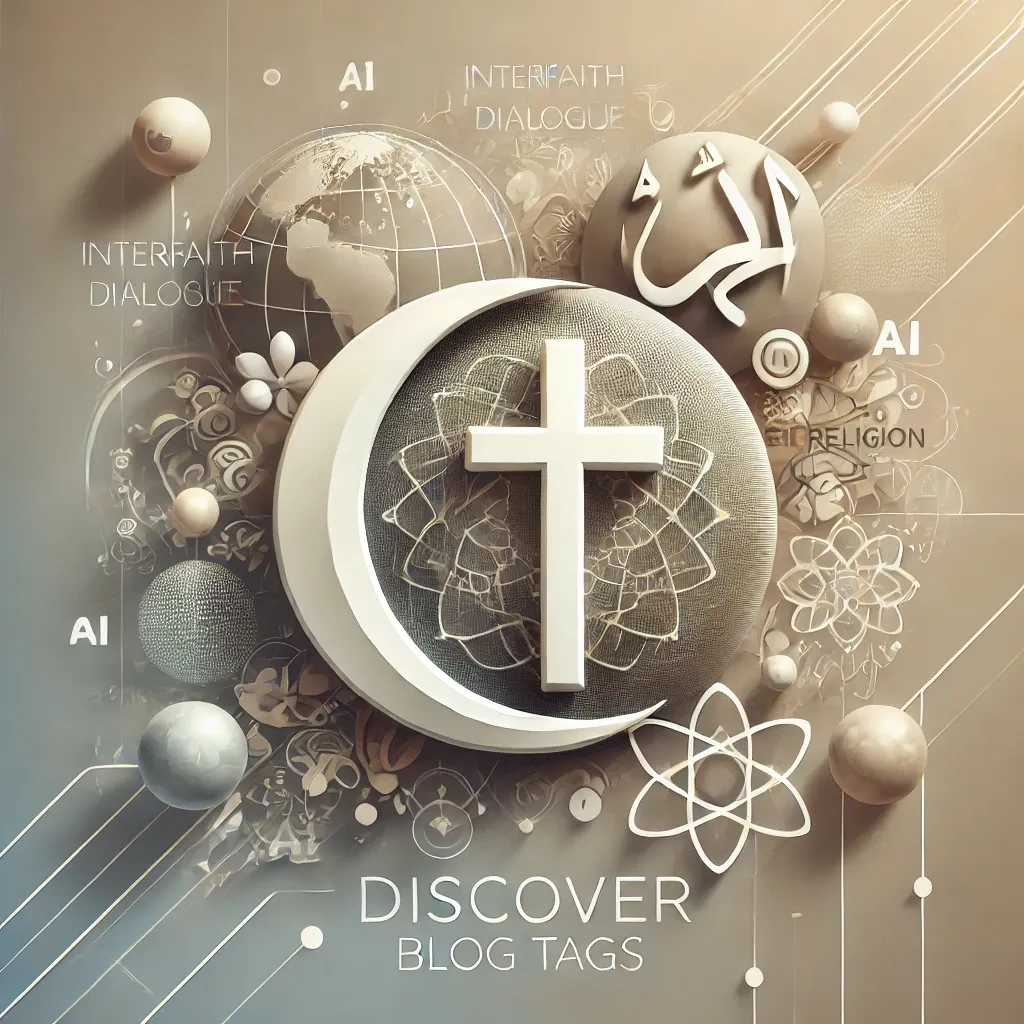

By Dr. Tim Orr
I arrived in London on October 7, 2023, expecting routine interfaith conversations with Shia leaders—discussions I had navigated countless times before. But the city I encountered was anything but routine, having heard about what Hamas did upon landing in London that night. As I stepped onto the crowded streets the following day, massive protests filled the air with chants denouncing Israel as an 'apartheid state.' Initially, I registered these slogans as familiar political rhetoric. However, as I learned more about Hamas's brutal attacks on Israeli civilians, the sinister reality became clearer. This was not mere political dissent but an eruption of virulent, old-world antisemitism cloaked in the language of modern justice. At that moment, a profound realization struck: what I was witnessing was a catastrophic convergence of Islam and Western progressivism—two global forces fostering a new, unbridled wave of antisemitism. This event was not just a shock to my senses but a pivotal moment that transformed my scholarly focus. I knew then that my academic journey needed to shift from dialogue to dissection, from ecumenical engagement to unyielding intellectual rigor.
The Foundations of My Scholarship: Encountering Islamic Thought from Within
My scholarly journey began with a desire to comprehend Islam from its sources. This pursuit took me to the Islamic College in London, a Shia-dominated institution where I earned an MA in Islamic Studies. Immersed in a rigorous academic setting, I studied under Shia scholars who presented Islamic thought as a set of doctrines and an integrated worldview intricately tied to law, politics, and culture.
As I grappled with Islamic texts and traditions, I engaged deeply with the revisionist currents in Islamic feminist scholarship. A key figure in this field was Ziba Mir-Hosseini, who boldly sought to reinterpret Islamic texts through the lens of Western feminist ideology. Her project aimed to reconcile Islamic law with contemporary concepts of gender justice, advancing arguments that sought to reframe Qur'anic interpretations and traditional jurisprudence to fit modern egalitarian principles. This broader movement of Islamic feminism attempts to navigate the tension between historical Islamic norms and contemporary ideals of women’s rights by reinterpreting foundational texts, Hadith literature, and Sharia.
At first, I was intrigued by the ambition of this scholarly movement—its willingness to challenge entrenched patriarchal readings and its drive to assert women’s rights within an Islamic framework. However, as I critically examined the methodologies and arguments, particularly those by Mir-Hosseini, I uncovered deeper intellectual challenges. Many of these reinterpretations relied heavily on selective readings of texts, emphasizing verses or Hadiths that could be aligned with modern human rights frameworks while downplaying or dismissing those that couldn’t. The interpretive methods were often anachronistic, imposing contemporary Western categories of thought onto texts and traditions that emerged in vastly different cultural and theological contexts. In doing so, these reinterpretations risked theological incoherence, distorting the internal logic of Islamic law and ethics.
Moreover, I noted that Islamic feminist scholarship’s attempts to align Islamic law with international human rights norms frequently ignored the unique epistemological and metaphysical assumptions of Sharia. Unlike modern secular legal systems, Sharia derives its authority from divine revelation, which means that it operates within a theological framework that defines justice, rights, and duties in distinct, non-secular terms. Attempts to reconcile it with modern human rights norms thus risk not only interpretive distortions but also theological reductionism, where Islamic law’s claims to divine authority are subordinated to secular notions of individual autonomy. My critique raised concerns about historical revisionism in Islamic feminist narratives. While these scholars emphasize women’s agency within Islamic history, their re-readings often project contemporary ideals onto historical figures and events, resulting in romanticized portrayals that overlook the complex realities of the past. This revisionism not only complicates historical accuracy but also obscures the theological intent of the sources.
Become a Paid Member
October 7, 2023: A Crisis that Reshaped My Scholarly Perspective
My arrival in London on October 7, 2023, for a series of meetings with Shia leaders marked a significant turning point in my academic focus. I intended to deepen my engagement with Shia scholars and further explore Islamic theological perspectives. However, what I encountered in the following days challenged my scholarly commitments and my understanding of the global ideological landscape.
On October 8, I witnessed massive protests in central London. The chants, banners, and slogans explicitly condemned Israel, branding it an 'apartheid state.' At first, I viewed these protests as extensions of the familiar anti-Zionist narrative pervasive in European political discourse. However, as more information about Hamas’s brutal attacks on civilians in Israel emerged, the rhetoric I observed on the streets took on a more sinister dimension. The protests were not merely expressions of political dissent but manifestations of a deep-seated antisemitism reminiscent of World War II-era rhetoric. The language of apartheid was not just a critique of Israeli policies but part of a broader ideological assault that sought to delegitimize Israel’s very existence, conflating Zionism with a demonic form of oppression.
This intellectual dissonance, my “Mia Coupa moment,” forced me to reevaluate the ideological forces at play. I realized that what I was witnessing was not just a resurgence of antisemitism but a convergence of two potent global ideologies: political Islam and Western progressivism. This ideological fusion weaponized anti-Zionist sentiments into a broader antisemitic narrative, mobilizing public outrage not just against Israel but against Jews as a people. The protests were not isolated incidents; they were part of a broader global movement that manifested on the streets of London and across elite American and European universities, where similar sentiments were expressed with intellectual sophistication under the guise of 'social justice.'
This revelation marked a shift in my scholarly focus. I recognized that the roots of this ideological convergence needed to be explored deeper, analyzing both the theological and sociopolitical dimensions that sustain it. The antisemitism I witnessed was not simply a relic of old prejudices but a complex, ideologically sustained phenomenon, intertwining religious beliefs with secular ideologies in a manner that demanded rigorous scholarly scrutiny.
From Dialogue to Dissection: A Shift Toward Scholarly Rigor
This understanding crisis catalyzed a fundamental shift in my approach to Islamic studies. My scholarship, which had previously aimed for interfaith dialogue and ecumenical engagement, now assumed a more critical, investigative stance. I began to apply Western scholarly tools to Islam with greater rigor, adopting methods that moved beyond dialogue to dissection.
One example of this methodological shift is my use of psychobiography to analyze the life of Muhammad. By examining Muhammad’s psychological development and emotional responses to rejection, I seek to uncover how personal experiences may have shaped core Islamic doctrines, including those related to dhimmitude and antisemitism. This approach humanizes Muhammad and subjects him to the same critical scrutiny applied to other historical figures, deconstructing the mythological aura that often surrounds his character in Islamic discourse. It allows for a nuanced exploration of how theological constructs were influenced by historical contingencies and personal experiences rather than merely divine revelation.
My current focus has sharpened significantly toward the study of Islamic antisemitism, a deeply entrenched phenomenon that often escapes critical examination in both the U.S. and the U.K. I argue that this evasion stems from a combination of political correctness, fears of being labeled 'Islamophobic,' and the lingering influence of Edward Said’s Orientalism. Said’s work, which critiqued Western depictions of Islam as inherently biased, has had a profound impact on Western academia, often leading to a defensive posture that discourages critical inquiry into the theological dimensions of Islam. This defensive posture is further reinforced by the rise of Western progressivism, which aligns with political Islam in its critique of Western imperialism, often masking antisemitic rhetoric under the guise of anti-colonialism and anti-racism.
My work now explicitly challenges these ideological barriers, seeking to deconstruct the narratives that shield Islam from rigorous critique. Christian polemics or political motivations do not drive this approach, which is grounded in a commitment to intellectual integrity and scholarly rigor. By analyzing the theological roots of Islamic antisemitism and its intersections with Western progressive ideologies, I aim to expose how these ideologies mutually reinforce each other, perpetuating a form of antisemitism that is both theologically and ideologically sustained.
Conclusion: Toward a New Scholarly Paradigm
The evolution of my scholarship represents more than a change in academic direction; it marks a fundamental transformation in how I engage with Islam and the complex ideological currents that shape our world. My shift from interfaith dialogue to rigorous critique has been driven by the urgent need to understand and expose the theological and sociopolitical underpinnings of contemporary Islamic antisemitism. The events of October 2023 in London revealed a deeper, more insidious convergence of ideologies that demanded a new approach—one that resists both political correctness and ideological silos, instead seeking to confront the uncomfortable truths that lie beneath. As I continue to apply theological critique, historical analysis, and psychobiographical critique, I am committed to pursuing a clearer understanding of Islam’s impact on the global stage. In this new scholarly paradigm, the goal is not merely to understand but to unveil, challenge, and offer a nuanced perspective grounded not in conciliatory dialogue but in pursuing intellectual truth. This path is not for the faint of heart, but it is necessary for those committed to uncovering the reality behind the rhetoric.
Tim Orr is a scholar, Evangelical minister, conference speaker, and interfaith consultant with over 30 years of experience in cross-cultural ministry. He holds six degrees, including a master’s in Islamic studies from the Islamic College in London. Tim taught Religious Studies for 15 years at Indiana University Columbus and is now a Congregations and Polarization Project research associate at the Center for the Study of Religion and American Culture at Indiana University Indianapolis. He has spoken at universities, including Oxford University, the University of Tehran, and mosques throughout the U.K. His research focuses on American Evangelicalism, Islamic antisemitism, and Islamic feminism, and he has published widely, including articles in Islamic peer-reviewed journals and three books.
Check out Tim's other articles.

Tim's YouTube Channel
 YouTube
YouTube